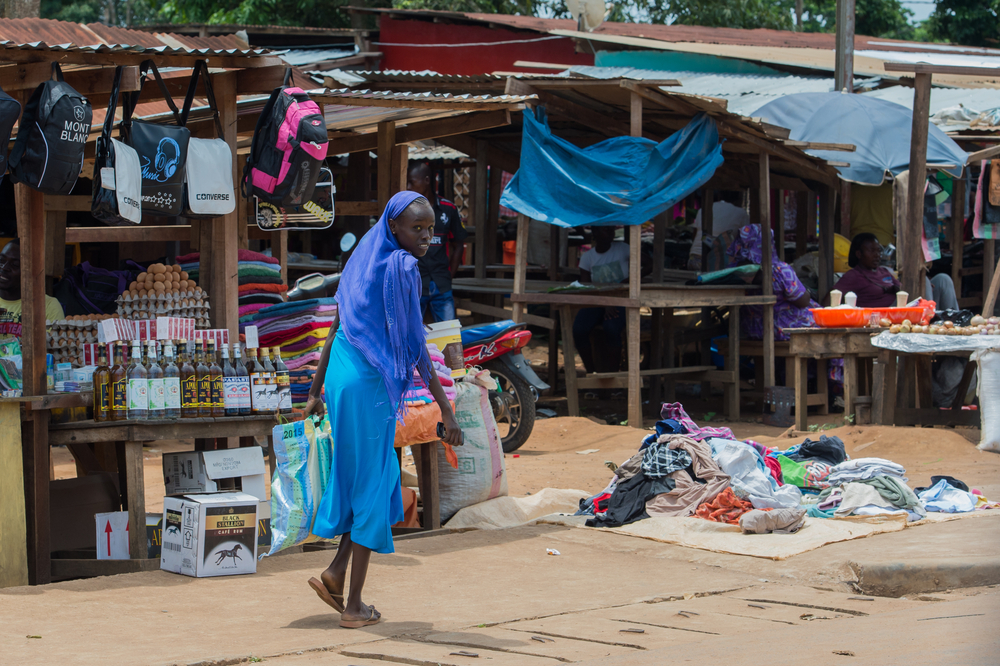The field of global mental health has been criticized for overemphasizing common mental illnesses like depression and anxiety, while neglecting more severe conditions such as bipolar disorder and psychosis, particularly in low- and middle-income countries, including those in sub-Saharan Africa. This issue is discussed in a recent article, “Reprioritising global mental health: psychoses in sub-Saharan Africa,” published in the International Journal of Mental Health Systems.
According to the authors, there has been insufficient research on psychoses in sub-Saharan Africa, resulting in a lack of information on the prevalence, severity, and cost of these conditions. They write:
“There are a number of reasons why psychoses in sub-Saharan Africa may have historically been deprioritized in global mental health, some of which are perhaps rooted in the constraints of international research carried out to inform ‘evidence-based’ decision-making. We don’t really know the true prevalence or incidence of psychoses in sub-Saharan Africa, their outcomes, or their costs—and what little we know about morbidity and mortality is not necessarily taken into account when calculating the ‘burden’ of psychoses in either epidemiological or economic terms.”
 The authors conducted a critical narrative literature review of psychosis in low- and middle-income countries as part of the scoping and development of a new Health Research Programme Consortium (RPC), SUCCEED Africa (Support, Comprehensive Care and Empowerment of People with Psychosocial Disabilities in sub-Saharan Africa) between 2018 and 2020. The authors noted that there are several reasons why psychoses in sub-Saharan Africa have historically been deprioritized in global mental health, with some reasons perhaps rooted in the constraints of international research carried out to inform “evidence-based” decision-making.
The authors conducted a critical narrative literature review of psychosis in low- and middle-income countries as part of the scoping and development of a new Health Research Programme Consortium (RPC), SUCCEED Africa (Support, Comprehensive Care and Empowerment of People with Psychosocial Disabilities in sub-Saharan Africa) between 2018 and 2020. The authors noted that there are several reasons why psychoses in sub-Saharan Africa have historically been deprioritized in global mental health, with some reasons perhaps rooted in the constraints of international research carried out to inform “evidence-based” decision-making.
The study revealed numerous contradictions and oversimplifications in the existing literature, making it difficult to understand the problem’s scope fully. A significant challenge the authors identified was the lack of reliable data on the prevalence and incidence of psychoses in sub-Saharan Africa. The authors highlighted that without more research from low- and middle-income countries, it is difficult to calculate the burden of psychoses and estimate more sophisticated measures like the Disability Adjusted Life Years (DALY).
“Of regional [Global Burden of Disease GBD estimates]… that mortality data was based on vital registrations from South Africa alone, representing just 1.1% of the population of sub-Saharan Africa. While advancements in health and demographic surveillance systems have helped to improve mortality estimates over the past two decades, they cannot substitute for adequate civil registration and vital statistics system,” they write.
“As of 2003, only five countries in sub-Saharan Africa were able to report “useable” mortality data from their vital registrations to the WHO…without more research from LMICs, we cannot claim to know the most basic facts about the global epidemiology of psychoses, rendering the calculation of more sophisticated measures (such as the DALY) highly suspect.”
The authors call for greater attention to be paid to psychoses in sub-Saharan Africa and for more research to be conducted to gain a better understanding of the scope of the problem. The authors emphasized that this research is essential to inform evidence-based decision-making and ultimately improve the care and outcomes for people with these conditions.
The changing political landscape in many sub-Saharan African nations has rendered much of the previous mental health work done in the region worthless. Sadly, research into psychosocial disability in Africa is not a priority due to the emphasis on curing depression and anxiety globally.
While traditional healing methods have been used to manage psychoses in sub-Saharan Africa, these alternatives are not accessible to everyone. According to a study, only 31% of individuals with schizophrenia in low and middle-income countries receive treatment annually, with just 11% in low-income countries. Even in Nigeria, where alternative care is available, only 8% of people with disabling disorders received treatment in the past year.
The authors argue that more research is needed to empower individuals with psychosocial disabilities in the region. They call for increased rights delivery and community mental health integration, citing the mhGAP program as a promising tool created by the World Health Organization to provide crisis intervention training to anyone capable of helping someone in need. They agree with Arthur Kleinman that the global health situation is dire and that serious action is needed to address psychosocial disability in sub-Saharan Africa.
****
Omigbodun, O. O., Ryan, G. K., Fasoranti, B., Chibanda, D., Esliker, R., Sefasi, A., … & Eaton, J. (2023). Reprioritizing global mental health: psychoses in sub-Saharan Africa. International Journal of Mental Health Systems, 17(1), 6. (Link)














